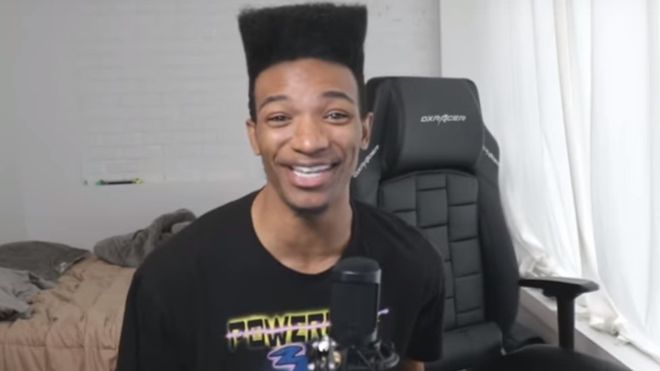Etika: the mental health of online streamers
On the 25th June 2019, the body of gaming YouTuber and streamer Desmond Amofah (known online as Etika) was found by the NYPD.
After posting an emotional video expressing suicidal thoughts, members of the online community became concerned about the YouTube star’s wellbeing and whereabouts. This was followed by the NYPD reporting the 29-year-old missing on 19th June 2019 after discovering his belongings, including his prized Nintendo Switch, on the Brooklyn Bridge. In the fickle world of online entertainment it is too easy for content creators to put their fans ahead of themselves, can we turn the tables and find ways to better support those we watch online?
Mental health problems can affect anyone no matter their situation
Etika’s struggle with his mental health was open and well-documented. Towards the end of the Nintendo Switch’s first year, the YouTuber’s uploads and streams became infrequent. As time progressed, his behaviour changed dramatically. Etika uploaded porn to YouTube, was hospitalised after several run-ins with the police, and filled his Twitter with messages claiming he was the anti-Christ. In a DramaAlert video with over 1.5 million views, Etika suggested that life was just a simulation controlled by an anti-Christ.
At the time Etika’s comments and actions were widely seen as a means to stay relevant. These outrageous jokes would keep himself in the spotlight for just a few moments longer. In hindsight, many fans are looking back on some of these instances as potential cries for help.
‘Influencers’ or ‘E-celebrities’ are often seen as being lucky because of their fame, especially because those like Ninja and Pewdiepie can earn close to $10 million annually, although this can come with potentially unhealthy and intense pressure. Mental health problems can affect anyone no matter their situation. Research and resources will be necessary to help this new generation of celebrities and prevent mental health issues becoming more prevalent.
In attempts to combat competition in an ever-expanding online world, influencers push themselves to create content at a faster rate. Tyler Blevins, known online as Ninja, highlighted these pressures on Twitter, where he complained that he “left for less than 48 hours and lost over 40,000 subscribers on Twitch. I’ll be back today… grinding again”.
When Etika’s uploads became infrequent fans on Twitter and Reddit, fans were quick to criticise him, accusing him of only creating content when he needed donations. In his final ‘I’m Sorry’ video on YouTube, Etika was perhaps referencing these instances when he apologised to fans for letting them down.
Etika’s death hit me very hard. I had been following him for several years after seeing his passion for Nintendo in his over-the-top live stream reactions to character reveals for Super Smash Bros. I would frequently tune in to see Etika during his self-proclaimed ‘hype’ streams in the build-up to and after the launch of the Nintendo Switch. When watching the Super Smash Bros. Ultimate announcements since this tragedy, something always feels missing.
We need to be there for the creators we watch
Ultimately, his legacy lives on through his community, the Joy-Con Boyz, who flocked to the Manhattan Bridge to leave tributes. Whilst it is touching to see people coming together for their much-loved YouTuber, streamer and friend I am left with a sense of regret, perhaps shame, in the wake of his passing on behalf of his fans and online communities. Etika’s ex-girlfriend told how he was ‘glued to the negative posts’ about him. Etika himself talked of the dangers of social media in his final video, which YouTube has since deleted. “It can f**k you up” he admitted.
As an online community, we need to be there for the creators we watch. Be there with support when they need time for themselves. Be there when they return, to show they can take breaks. Be there by contacting YouTube, Twitch or any online platform if someone’s posts and uploads suggest they might need help.
If you have been affected by this story in any way or wish to contact anyone, helplines such as the Samaritans hotline (116123) and Warwick’s Wellbeing Support Services (024 7657 5570) are available. International helplines can be found at www.befrienders.org.

Comments